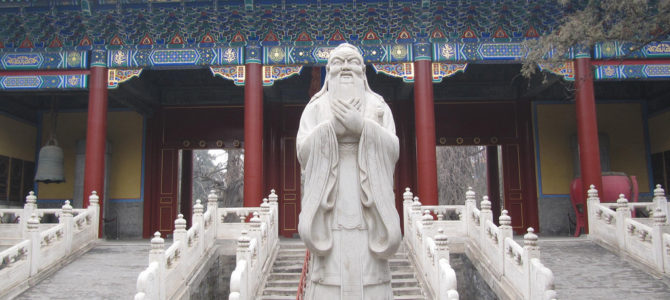
It isn’t just aging hippies burrowed deeply in academia who teach radical notions to gullible American college students. Foreign governments also often take in a hand. China has done it with its infamous Confucius Institutes. So have Arab states.
Now a New York congressman is demanding an investigation into whether Iran is following suit and funneling money to the Ivies. And none other than the University of Miami seems to be buckling to a long-standing desire by the dictators in Havana to close down its highly regarded Cuba studies center.
This is troubling on many levels. Radical professors have created a woefully misinformed generation of Americans who know little about the Constitution and what it takes to maintain a republic. But if foreign dictatorships in the Middle East, Asia, and Latin America also get a vote on what our students learn, America will have a problem for decades to come.
Controlling What We Learn about Foreign Countries
China’s attempt to influence how Americans think takes a multitude of forms. It has bought its way into big Hollywood studios, which kowtow to Beijing by submitting to its censorship if they want to play in the lucrative Chinese market. China has also taken over some American radio stations to spread its propaganda here.
The Confucius Institutes censor what American university students can learn about China. There are around 100 of these Chinese government-supported centers set up at American universities and some 400 “Confucius classrooms” in our K-12 schools.
In exchange for the money Beijing plunks down, these universities allow the Communist Party in Beijing to stifle teaching on such subjects as China’s occupation of Tibet, the Tiananmen Square Massacre, and Taiwan’s independence (China’s forbidden “Three Ts”).
The Saudis, too, have for years spent lavishly on American universities and organizations that design Saudi-friendly curricula. As Stanley Kurtz described it in a 2007 article in National Review Online, Middle East studies centers have “been serving as a kind of Trojan horse for Saudi influence over American K-12 education.”
Small wonder that Rep. Dan Donovan (R-N.Y.) is urging U.S. Education Secretary Betsy DeVos to investigate why the New York City-based Alavi Foundation, which is controlled by the Iranian regime, is funneling millions into Ivy League universities and pro-Iranian and anti-Israeli academics.
“Did this foundation attempt to subvert American academic institutions?” Donovan asked. “We need to investigate this, and universities have to do a better job of vetting their donors.”
We Disagree, So I’m Shutting You Down
That brings us to the curious case of the University of Miami, where President Julio Frenk is trying to close down its Institute for Cuban and Cuban-American Studies. Long a thorn in the side of the communist dictatorship in Havana, ICCAS has constantly received vituperative attacks by the regime’s propaganda outlets. Never before, however, has it come under the threat of the university’s own leadership.
Frenk is a long-standing and well-known admirer of the Cuban regime’s health practices. As Mexico’s health secretary in 2001, he said Cuba had the best health indicators in Latin America, and Mexico would benefit from learning about Cuba’s success.
Unfortunately for Frenk, the ICCAS kept saying the truth about Cuba’s failed health system, as it did on July 20 in a report called “Cuba’s Silence is Dangerous to Your Health.” That report notes that “After a century hiatus, cholera, malaria and dengue have returned to Cuba.” I post the report here because it seems to have disappeared from the ICCAS website.
The move to close the ICCAS by Frenk, whose wife Felicia Knaul was installed as the university’s director of the Miami Institute of the Americas after he became president, proved highly controversial in Miami. He now says he never wanted to close the center at all, but only to change its leadership.
Frenk’s version of events is disputed by Jose Azel, one of the academics whom Jaime Suchliki, the esteemed ICCAS director, had to summarily dismiss when he was informed by the university’s provost on July 9 that he had to close the institute on August 15. In an article recently in El Nuevo Herald, The Miami Herald’s Spanish-language edition, Azel says “I have verified that Dr. Suchliki’s termination agreement explicitly requires him to ‘effect the cessation of operations for the Institute for Cuban and Cuban-American Studies’.”
“Those are the facts as I know them,” writes Azel. “Now we can ask: If Dr. Frenk did not intend to dismantle ICCAS, why did he find it necessary to fire, without the courtesy of an explanation, the entire ICCAS staff? Were they incompetent, or were they an impediment to the implementation of his plans? What were those plans?”
During a visit to Washington on July 19, Ofelia Acevedo, the widow of the slain Cuban dissident Oswaldo Paya, warned that one of the reasons Cubans have not received international solidarity despite 60 years of communist dictatorship is that cultural Marxists have taken over America’s universities.
“Cuban students at universities here tell me that whenever they try to say the truth about Cuba, they get shouted down,” she said. We shouldn’t blame our students, though. It’s their academics who’ve led them down.









